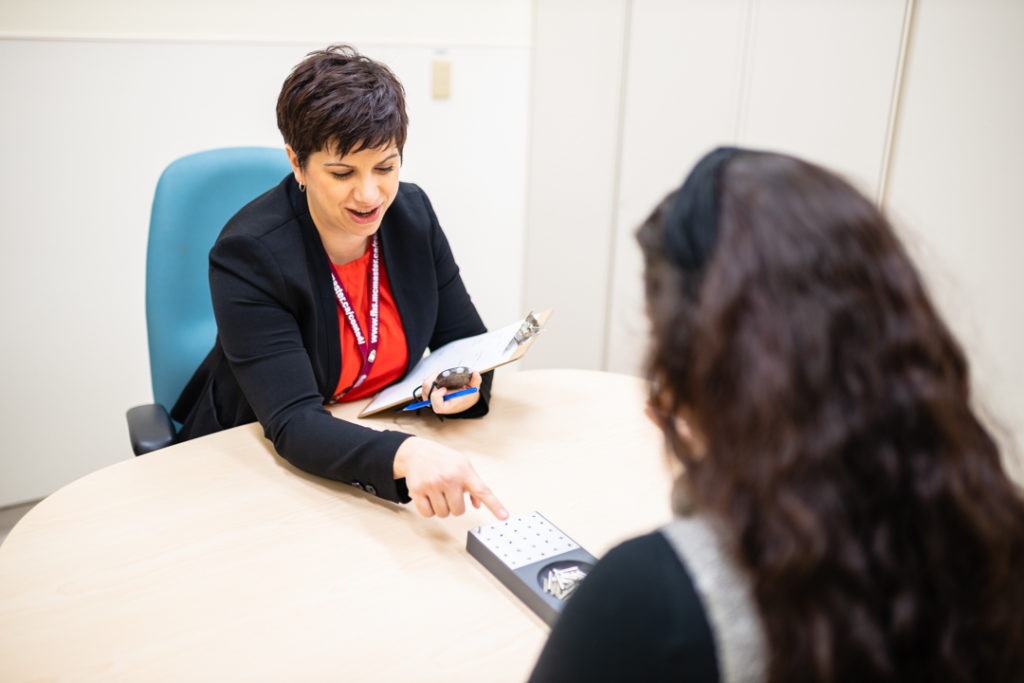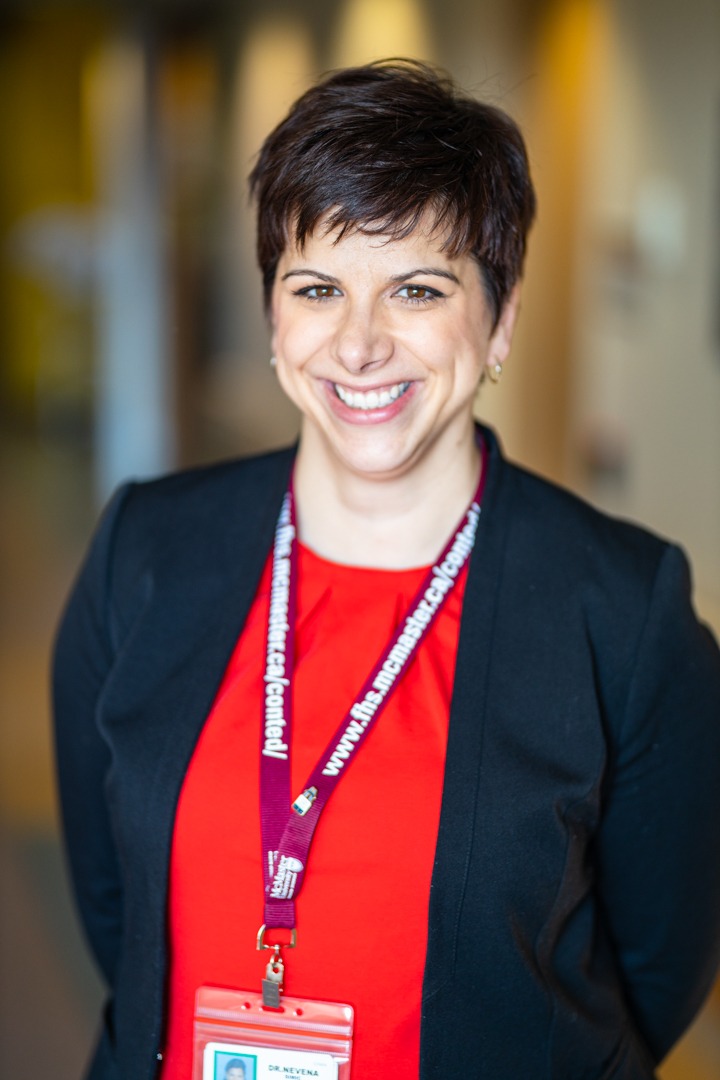
Introducing…a Neuropsychologist
Illnesses, injuries, and diseases of the brain and nervous system can affect the way a person feels, thinks, and behaves. A neuropsychologist evaluates and treats these people, examining how the brain and the rest of the nervous system influence a person’s thinking and behaviours.
Dr. Nevena Simic is a clinical neuropsychologist in the Comprehensive Pediatric Epilepsy Program (CPEP) at McMaster Children’s Hospital.
What does a Neuropsychologist do?
Dr. Simic assesses kids and teens for functioning to determine diagnoses and provide recommendations. She evaluates their thinking skills, such as intelligence, problem-solving and reasoning, language, visual perceptual and spatial skills, attention, learning and memory.
The goal of Dr. Simic’s assessments is to understand the connection between brain structure and function and how a child thinks, acts, and feels. These assessments help the medical team make decisions about epilepsy surgery and other ways to manage seizure disorders.
For example, for a child being considered for epilepsy surgery, Dr. Simic will look at whether a brain lesion on their MRI is reflected in difficulties they may have in their memory, language, or problem-solving skills. Dr. Simic also follows children over time to monitor for loss of thinking abilities related to certain types of epilepsy.
“I love working with our patients and families”
“I love working with our patients and families and find it gratifying when I can help parents understand their child’s thinking abilities, and learning strengths and weaknesses,” says Dr. Simic.
What led to becoming a Neuropsychologist?

Dr. Simic began her undergraduate career at McMaster University in general science when she encountered her first psychology course. “The course examined how the brain coordinates our interactions with the environment, and how different parts of the brain are responsible for different behaviours like seeing, talking, and remembering. From then on I was hooked,” she recalls.
After 13 years of rigorous education and training, she became a fully licensed clinical neuropsychologist. The stars aligned and a job opportunity came up in her hometown of Hamilton, and she began working in the CPEP program at McMaster Children’s Hospital.
What’s something people would be surprised to learn about your role?
“The amount of time I spend writing,” says Dr. Simic. “The most time-intensive part of my job is collecting and interpreting all of the information about a patient, including concerns, observations during testing, and test results. It’s kind of like detective work combined with storytelling”.
Dr. Simic has to make decisions about appropriate diagnoses and recommendations for the patient’s everyday life. This is what makes her reports some of the longest documents her patients receive.
Why HHS?
“I was really excited about this opportunity at HHS as it combines all my training and expertise in pediatric neuropsychology, including practice in epilepsy, while also bringing me back home,” recalls Dr. Simic.
What’s more, Dr. Simic is a proud Hamiltonian so she was excited to return home with her husband and toddler to this thriving, revitalizing city. Not to mention the opportunity to enjoy Hamilton’s best features: great food and art.
